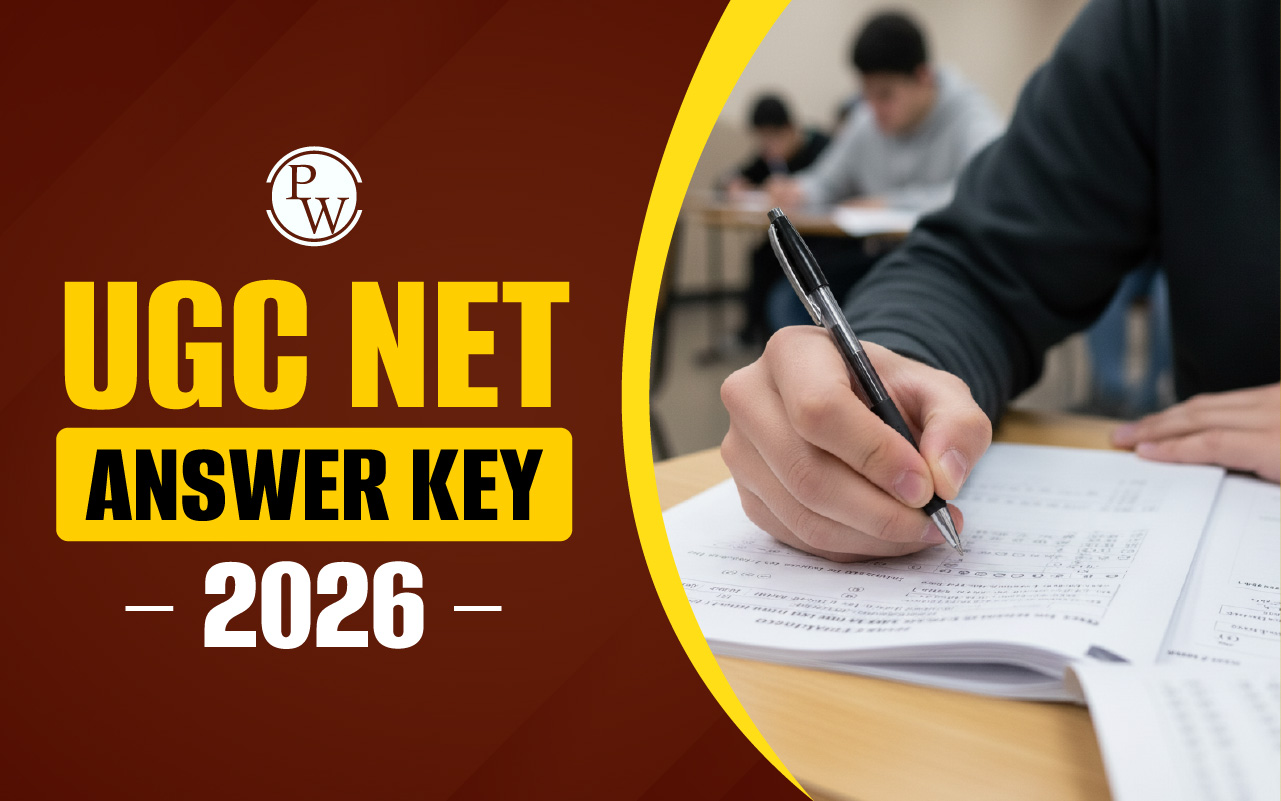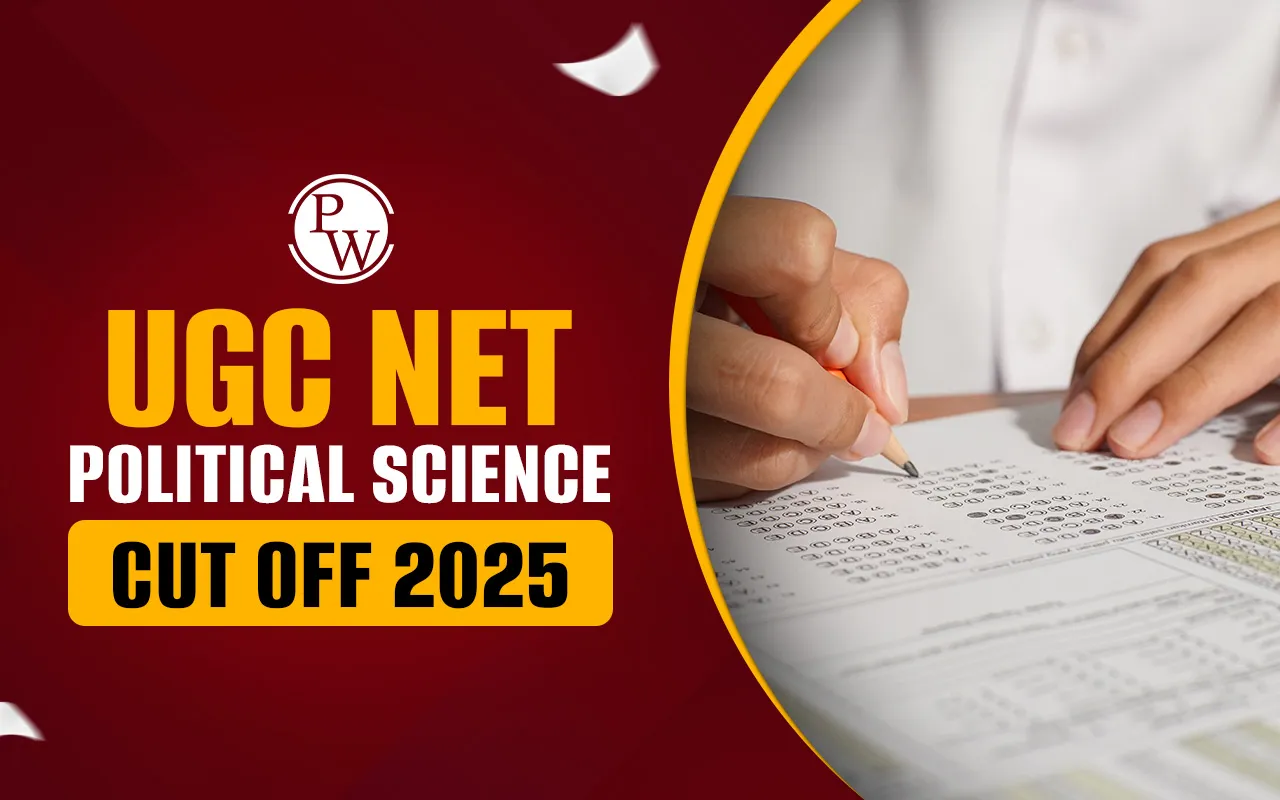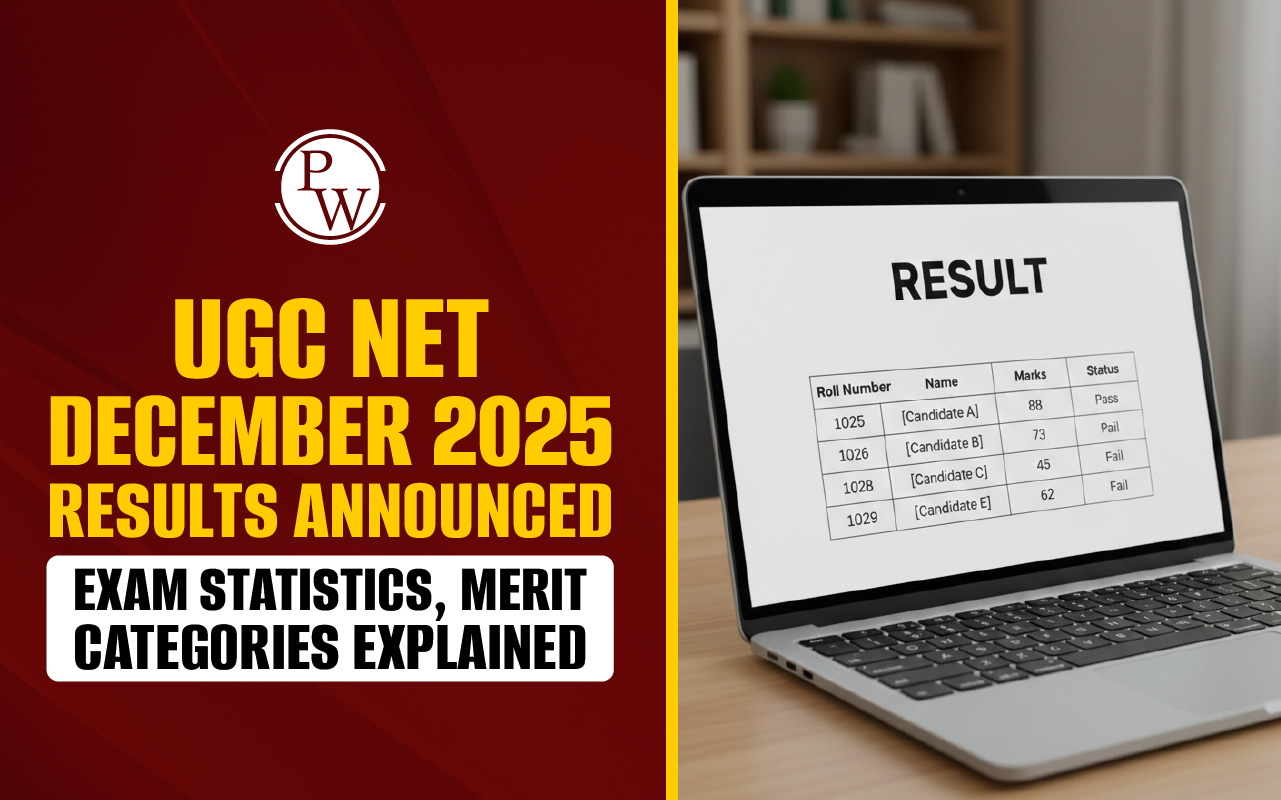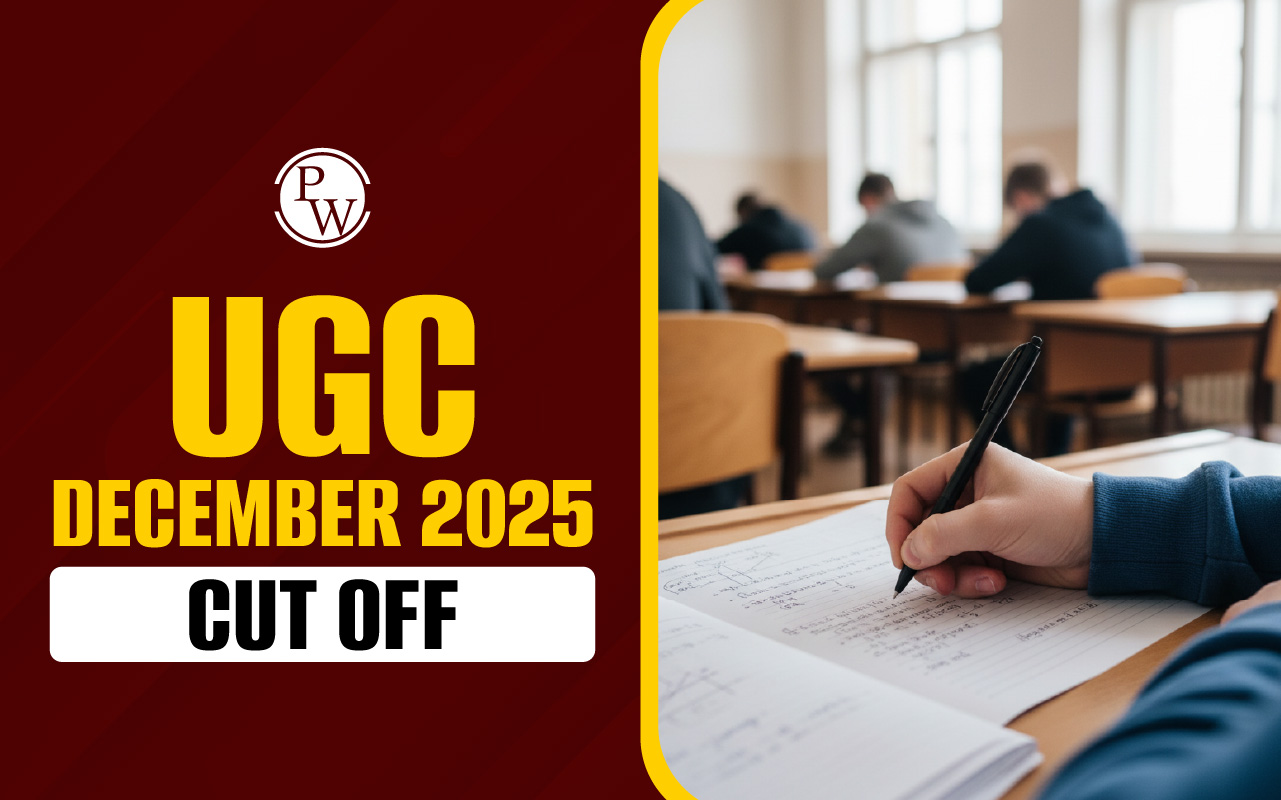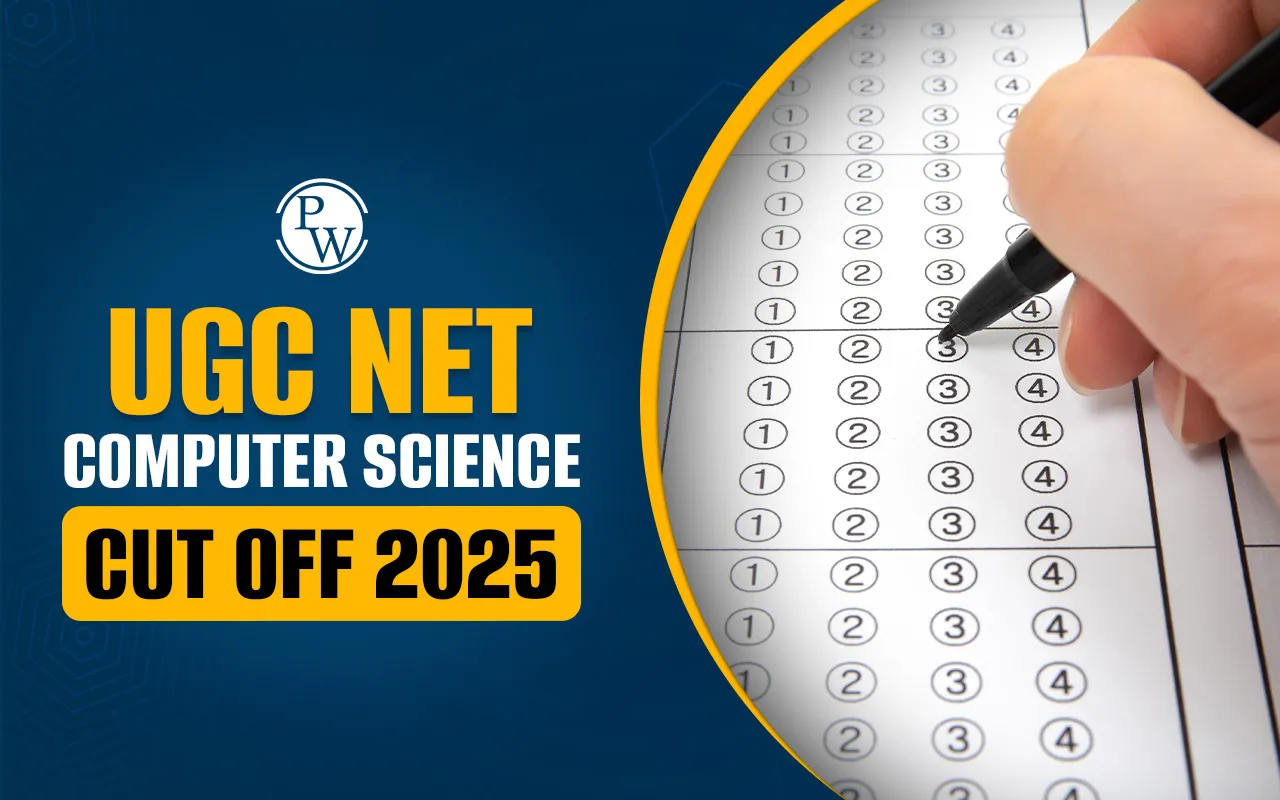
UGC NET Exam Analysis 2025 provides a detailed overview of the examination conducted by the National Testing Agency (NTA) from 25th June to 29th June 2025. This analysis offers comprehensive insights into the exam pattern, question types, and overall difficulty level. It covers both Paper I and Paper II, outlining the number of questions and the topics covered in each section. The analysis aims to help candidates understand the structure of the examination and align their preparation accordingly. Based on students’ reviews and faculty analysis, this overview enables candidates to better gauge exam trends and subject-wise distribution to enhance their readiness for the upcoming UGC NET examination.
UGC NET Exam Analysis 2025 Overview
UGC NET Exam 2025 is conducted by the National Testing Agency (NTA) to assess the eligibility of candidates for the roles of Assistant Professor and for the award of Junior UGC NET Exam Analysis 2025Research Fellowship. The examination is scheduled to take place from 25th June to 29th June 2025. It consists of two papers: Paper I and Paper II. This is a national-level examination comprising a total of 150 multiple-choice questions. The duration of the exam is 3 hours, and it is available in both English and Hindi languages. Refer to the table below for a detailed overview.
| UGC NET Exam Analysis 2025 Overview | |
| Events | Details |
| Exam Name | UGC NET June 2025 |
| Conducting Body | National Testing Agency (NTA) |
| Exam Level | National |
| Number of Papers | Two (Paper I and Paper II) |
| UGC NET Exam Date | 25th June - 29th June, 2025 |
| Exam Duration | 3 hours |
| UGC NET 2025 Exam Time |
|
| Question Type | Multiple Choice Questions (MCQs) |
| Number of Questions | 150 (Paper I: 50 questions, Paper II: 100 questions) |
| Total Marks | 300 (Paper I: 100 marks, Paper II: 200 marks) |
| Medium of Exam | English and Hindi |
| Official Website | ugcnet.nta.ac.in |
UGC NET June 2025 Exam Schedule
National Testing Agency (NTA) will conduct the UGC NET examination from 25th June to 29th June 2025. The assessment includes two papers, Paper I, assessing general aptitude, and Paper II, focused on subject-specific knowledge. Both papers are administered on the same day, with a combined duration of three hours. Examinations will be conducted in multiple shifts at designated centres across India. Candidates must report at least one hour before the commencement time and bring their admit card and valid photo identification. The schedule, including reporting time, shift details, and exam venue, will be communicated through the official admit card.
UGC NET Exam Analysis 2025 29th June Shift 2
UGC NET Exam on June 29, 2025 (Shift 2) saw aspirants engrossed in a rigorous assessment of their teaching and research aptitude, featuring a well-balanced mix of subject-specific questions and general awareness topics. In this analysis, we’ll explore the difficulty level, key themes, standout questions, and overall pattern, empowering future candidates with valuable insights to refine their preparation strategies.
| UGC NET Exam Analysis 2025 29th June Shift 2 | ||
| Subject Name | Topics Asked | Difficulty Level |
| Geography | Population Geography, Climatology, Geomorphology, Oceanography, Remote Sensing & GIS, Human Geography, Environmental Geography, Agricultural Geography, Settlement Geography, Regional Development and Planning, Models and Theories in Geography, Indian Geography. | Moderate to Hard |
| Marathi | Medieval Marathi Literature, Modern Marathi Poetry, Marathi Novel and Drama, Linguistic Features of Marathi Language, Saints Literature (Bhakti Movement), Dalit and Feminist Literature, Literary Criticism and Theory, Folk Literature, Grammar and Language Structure, Post-Independence Marathi Writing. | Easy to Moderate |
| Punjabi | Punjabi Folk Literature, Modern Punjabi Poetry, Gurbani and Sikh Literature, Medieval Punjabi Literature, Literary Criticism and Poetics, Punjabi Grammar and Linguistics, Postmodern Punjabi Literature, Cultural Movements, Drama and Prose Forms, Translation Studies in Punjabi. | Easy to Moderate |
| Tamil | Sangam Literature, Modern Tamil Poetry and Prose, Bhakti Literature (Alwar and Nayanmar), Grammar and Linguistics, Tamil Epics (Silappatikaram, Manimekalai), Modern Novels and Short Stories, Literary Criticism, Folklore and Oral Traditions, Drama, Contribution of Tamil to Indian Culture. | Moderate |
| Economics / Rural Economics / Cooperation / Demography / Development Planning / Development Studies / Econometrics / Applied Economics / Development Economics / Business Economics | Microeconomics, Macroeconomics, Public Finance, Indian Economy, International Trade, Monetary and Fiscal Policy, Demographic Trends and Issues, Rural Development and Planning, Sustainable Development, Econometrics Models, Poverty and Inequality, Cooperative Movements, Business Environment, Economic Growth Theories, Agricultural and Labour Economics. | Moderate to Hard |
| Museology & Conservation | History of Indian Museums, Conservation Techniques (Preventive and Curative), Museum Architecture and Exhibition Design, Collection Management, Heritage Legislation in India, Role of ICOM and ICCROM, Documentation Methods, Conservation Materials, Art Handling, Museum Education, Object Classification, Modern Museology Trends. | Easy to Moderate |
UGC NET Exam Analysis 2025 29th June Shift 1
UGC NET Exam Analysis 2025 for 29th June Shift 1 offers a detailed overview of the exam conducted by the National Testing Agency (NTA) from 9:00 AM to 12:00 PM. Based on expert review and student feedback, this analysis highlights the overall difficulty level, section-wise performance, good attempts, and important topics asked across both Paper 1 and Paper 2.
| UGC NET Exam Analysis 2025 29th June Shift 1 | ||
| Subject Name | Topics Asked | Difficulty Level |
| French (French Version) | Medieval French Literature, Age of Enlightenment and Philosophers, Realism and Naturalism, Existentialism, Theatre of the Absurd, Grammar Analysis, Translation Studies, French Linguistics, French Civilization, Methodology of Teaching French as a Foreign Language (FLE) | Easy to Moderate |
| German | History of German Literature, Expressionism, Enlightenment, History of German Language, Phonetics and Phonology, Syntax and Morphology, Translation Studies, Didactics of German Language, German Culture and Civilization, Text Analysis and Interpretation | Moderate |
| Hindi | Indian Poetics, Modern Hindi Poetry, Chhayavaad Movement, Progressive Literature, New Poetry (Nayi Kavita), Hindi Drama and One-Act Plays, Hindi Prose Literature, Literary Criticism and Poetic Theories, Linguistics, Translation Studies | Easy to Moderate |
| Kannada | History of Kannada Literature, Vachana Literature, Navodaya Literary Movement, Kannada Poetry Traditions, Kannada Drama and Fiction, Linguistics, Kannada Grammar, Kannada Culture and Heritage, Dalit Literature, Literary Criticism | Easy to Moderate |
| Manipuri | Classical Manipuri Literature, Modern Manipuri Poetry, Short Stories and Novels, Manipuri Language and Grammar, Manipuri Folklore, Cultural Studies, Literary Criticism, Manipuri Drama, Comparative Literature, Sociolinguistics | Moderate |
| Sindhi | Classical Sindhi Poetry, Sufi Literature, Modern Sindhi Prose, Short Stories and Essays, Linguistic Features of Sindhi, Sindhi Grammar, Cultural and Social History, Literary Movements, Sindhi Drama, Folk Literature and Literary Criticism | Moderate |
| Sociology | Classical Sociological Thinkers, Research Methodology, Indian Sociological Traditions, Social Institutions, Social Stratification, Globalization, Gender and Society, Social Change and Development, Contemporary Sociological Theories, Current Social Issues | Moderate |
UGC NET Exam Analysis 2025 28th June Shift 2
The Shift 2 subject-wise Paper 2 analysis of UGC NET conducted on 28th June 2025 has been compiled based on student feedback and academic observations. Though data is still being compiled for subjects including Psychology, Management, and Disaster Management, the general perception indicates a moderate level of difficulty. The questions were largely curriculum-aligned and required both conceptual understanding and application-based reasoning.
| UGC NET Exam Analysis 2025 28th June Shift 2 | ||
| Subject Name | Topics Asked | Difficulty Level |
| Psychology | Foundations of Psychology, Cognitive and Affective Processes, Learning and Motivation, Personality Theories, Social Psychology, Research Methods and Statistics, Psychological Testing, Developmental Psychology, Clinical and Abnormal Psychology, Industrial and Organizational Psychology. | Moderate |
| Maithili | History and development of Maithili language, major literary periods, ancient and medieval poetry, folk traditions and oral literature, modern prose and poetry, drama and essays, grammar and linguistics of Maithili, literary criticism and cultural context. | Easy to Moderate |
| Arabic | Classical Arabic literature, Modern Arabic prose and poetry, Arabic grammar and syntax, Arabic linguistics, translation and interpretation, Quranic studies and Hadith literature, Arabic rhetoric and stylistics, literary criticism, history of Arabic literature across regions. | Easy to Moderate |
| Gujarati | History of Gujarati language, medieval and bhakti literature, modern poetry and fiction, grammar and linguistic features, folk literature and reform movements, literary forms such as essays and drama, literary criticism, major authors like Narmad, Umashankar Joshi, and Suresh Joshi. | Easy to Moderate |
| Management | Principles and Functions of Management, Organizational Behaviour, Human Resource Management, Financial Management, Marketing Management, Strategic Management, Business Environment, Entrepreneurship Development, Managerial Economics, Corporate Governance and Ethics, Research Methodology. | Moderate |
| Telugu | Origin and evolution of Telugu language, classical and medieval Telugu literature, modern literary movements, prose and poetry, grammar and linguistics, folk and tribal literature, literary criticism, contributions of writers like Pothana and Gurajada Apparao. | Easy to Moderate |
| Physical Education | History and foundation of Physical Education, Anatomy and Physiology, Kinesiology and Biomechanics, Sports Psychology and Sociology, Training Methods, Yoga and Physical Fitness, Health Education and Nutrition, Rules of Games and Sports, Research Methodology in Physical Education. | Moderate |
| Sanskrit Traditional Subjects | Vedas and Vedangas, Darshanas (Indian Philosophical Systems), Sanskrit grammar (Paninian system), Kavya Shastra, Indian Epics (Ramayana, Mahabharata), Upanishads, Classical Sanskrit Literature, Commentaries and Sub-commentaries, Alankara Shastra, Manusmriti and Dharmashastra texts. | Moderate |
| Ayurveda Biology | Basic concepts of Ayurveda (Tridosha, Panchamahabhuta), Anatomy and Physiology in Ayurveda (Sharira Rachana and Kriya), Dravyaguna (Ayurvedic pharmacology), Rasashastra and Bhaisajya Kalpana, Pathology (Rogavigyan), Ayurvedic diagnosis and treatment methods, medicinal plants and their properties, role of diet and lifestyle in Ayurveda. | Easy to Moderate |
| Disaster Management | Fundamentals of disaster management, types and classification of disasters, disaster preparedness and mitigation strategies, risk assessment and vulnerability analysis, institutional frameworks and policies in India, community-based disaster management, climate change and its impact, post-disaster recovery and rehabilitation, role of technology and GIS in disaster response. | Moderate |
| Overall | Easy to Moderate | |
UGC NET Exam Analysis 2025 28th June Shift 1
On June 28, 2025, the UGC NET exam unfolded nationwide, attracting thousands of aspiring researchers and educators. This comprehensive analysis dissects the paper’s key features, difficulty levels, question types, standout trends, and subject-wise performance. Whether you’re evaluating your performance, spotting topic patterns, or guiding future aspirants, our detailed breakdown delivers actionable insights and expert commentary to help you navigate the path ahead.
| UGC NET Exam Analysis 2025 28th June Shift 1 | ||
| Subject Name | Topics Asked | Difficulty Level |
| Bodo | Sources and historiography (ancient, medieval, modern), Harappan civilization, Vedic culture, Mauryan and Gupta empires, Bhakti and Sufi movements, Delhi Sultanate and Mughal administration, colonial rule and 1857 revolt, national movements, economic and social impact of British policies, post-independence reorganization, art, architecture and literature through ages, world history including French Revolution, World Wars, and Industrial Revolution. | Easy to Moderate |
| History | History of Odia language, evolution of Odia literature, medieval Odia poetry including Panchasakha and Vaishnava traditions, modern Odia literature – prose, fiction and poetry, major literary movements and periods, folk traditions and ballads, contributions of writers like Fakir Mohan Senapati and Gangadhar Meher, grammar and linguistic structure of Odia, drama and literary criticism. | Moderate |
| Oriya | History of Odia language, evolution of Odia literature, medieval Odia poetry including Panchasakha and Vaishnava traditions, modern Odia literature – prose, fiction and poetry, major literary movements and periods, folk traditions and ballads, contributions of writers like Fakir Mohan Senapati and Gangadhar Meher, grammar and linguistic structure of Odia, drama and literary criticism. | Easy to Moderate |
| Pali | Origin and development of Pali language, canonical literature including Tipitaka (Vinaya, Sutta, Abhidhamma), non-canonical texts and commentaries, Pali grammar and syntax, schools of Buddhism and their literature, influence of Pali on Indian languages, contribution of Pali texts to Indian philosophy and ethics, translation and interpretation of Pali texts, notable Pali scholars and works. | Easy to Moderate |
| Prakrit | Definition, origin and classification of Prakrit languages, relationship between Sanskrit, Prakrit and Apabhramsa, important Prakrit texts like Gatha Saptasati and Jain Agamas, features of Maharashtri, Shauraseni and Magadhi, Prakrit grammar by scholars like Siddha Hemachandra and Vararuchi, Jain literature in Prakrit, role of Prakrit in Sanskrit drama, phonological and morphological features, Prakrit prosody and metrics. | Moderate |
| Overall | Moderate | |
|
UGC NET Subject Wise Exam Analysis 2025 |
|
UGC NET Exam Analysis 2025 27th June Shift 2
UGC NET Exam Analysis 2025 27th June Shift 2 offers a detailed insight into the examination that was conducted between 3:00 P.M. to 6:00 P.M by the National Testing Agency. Based on inputs from candidates and faculty, the overall difficulty level was easy to moderate. The provided analysis highlights important insights related to UGC NET June 2025, including question trends, good attempts, and expected qualifying marks for the session.
| UGC NET Exam Analysis 2025 27th June Shift 2 | ||
| Subject Name | Topics Asked | Difficulty Level |
| English | Literary Criticism and Theory, British Literature from Chaucer to the Modern Age, American and Indian Writing in English, Contemporary Literary Movements, Postcolonial Literature, Feminist Theory, World Literature, Literary Devices and Figures of Speech | Moderate |
| Yoga | Ashtanga Yoga, Patanjali Yoga Sutras, Hatha Yoga Practices, Yoga and Mental Health, Yogic Diet and Lifestyle, Yoga in Modern Education, Contributions of Swami Vivekananda and Maharshi Aurobindo, Human Physiology and Yoga | Easy to Moderate |
| Politics including International Relations / International Studies / Soviet Studies / American Studies | Theories of International Relations, Indian Political Thought and Constitution, Global Political Institutions such as UN and IMF, India's Foreign Policy, US Foreign Policy, Cold War and Soviet Strategy, Comparative Politics, Geopolitical Strategies | Moderate |
| Human Rights and Duties | Universal Declaration of Human Rights, Indian Constitution and Fundamental Rights, Duties under the Indian Legal Framework, Role of NHRC and SHRC, Human Rights in Global Context, Discrimination and Minority Rights, Refugee Protection, International Conventions on Human Rights | Moderate |
| Hindu Studies | Vedas and Upanishads, Smritis and Dharma Shastra, Philosophical Systems like Samkhya and Vedanta, Hindu Rituals and Worship Practices, Bhakti Movement, Hindu Temples and Iconography, Contemporary Hindu Thinkers, Interpretation of Sacred Texts | Easy to Moderate |
| Dogri | Dogri Phonology and Morphology, Classical and Modern Dogri Literature, Folk Literature and Oral Traditions, Contributions of Prominent Dogri Writers, Dogri Grammar and Syntax, Cultural Practices and Regional Identity | Moderate |
| Spanish | Spanish Grammar and Syntax, Translation and Interpretation, Literature of Spain and Latin America, Works of Cervantes and Neruda, Cultural and Historical Background of Spanish-speaking Regions, Spanish for Business and Tourism, Language Teaching Methodology | Moderate |
| Comparative Study of Religions | Core Doctrines of Major World Religions, Rituals and Practices Across Traditions, Comparative Religious Ethics, Philosophy of Religion, Interfaith Dialogue, Secularism and Religion in Society, Sacred Text Analysis, Modern Religious Movements | Easy to Moderate |
| Kashmiri | Kashmiri Phonetics and Grammar, Classical and Modern Literature in Kashmiri, Folk Songs and Cultural Expressions, Works of Lalleshwari and Habba Khatoon, Identity and Language Politics, Kashmiri Fiction and Drama, Linguistic Structure and Usage | Easy to Moderate |
| Overall | Easy to Moderate | |
UGC NET Exam Analysis 2025 27th June Shift 1
UGC NET Exam Analysis 2025 27th June Shift 1 offers a detailed review of the exam conducted from 9:00 AM to 12:00 PM. Based on inputs from candidates and faculty, the overall difficulty level was moderate. This analysis highlights important insights related to UGC NET June 2025, including question trends, good attempts, and expected qualifying marks for the session.
| UGC NET Exam Analysis 2025 27th June Shift 1 | |
| Subject Name | Difficulty Level |
| Commerce | Moderate |
| Defence and Strategic Studies | Moderate |
| Linguistics | Moderate |
| Anthropology | Easy to Moderate |
| Visual Art | Easy to Moderate |
| Social Medicine & Community Health | Moderate |
| Tourism Administration and Management | Easy to Moderate |
| Overall | Moderate |
UGC NET Exam Analysis 2025 26th June Shift 2
UGC NET Exam Analysis 2025 26th June Shift 2 presents a structured overview of the second shift held from 3:00 PM to 6:00 PM. Based on student feedback and faculty inputs, the difficulty level of the exam ranged from easy to moderate. This analysis covers key aspects like UGC NET June 2025 shift-wise performance and expected qualifying outlook.
| UGC NET Subject Wise Exam Analysis 2025 26th June Shift 2 | ||
| Subject Name | Topics Asked | Difficulty Level |
| Political Science | Liberty, Equality, Justice, Democracy, Indian Constitution, Federalism, Political Ideologies (Liberalism, Marxism, Feminism), Indian Political Thought (Gandhi, Ambedkar, Kautilya), Electoral System, Governance and Public Policy, International Relations Theories, India’s Foreign Policy. | Easy to Moderate |
| Comparative Literature | Theories of Comparative Literature, History of the Discipline, Translation Studies, Classical and Modern Indian Literary Traditions, Oral and Folk Narratives, Poetics and Literary Theory, Intertextuality, Genre Studies, National vs. World Literature. | Easy to Moderate |
| Assamese | Assamese Grammar, History of Assamese Literature, Medieval and Modern Literary Movements, Folk Literature, Linguistic Features of Assamese, Major Writers and Poets, Evolution of Script and Language. | Moderate |
| Santali | Santali Grammar and Syntax, History of Santali Literature, Oral Traditions and Folklore, Contribution of Pandit Raghunath Murmu, Ol Chiki Script, Literary Movements, Key Poets and Writers. | Moderate |
| Adult Education / Continuing Education / Andragogy / Non-formal Education | Principles of Andragogy, Lifelong Learning, Adult Literacy Programs, Policy Frameworks, Non-formal Education Models, Community-Based Learning, Instructional Strategies, Evaluation and Assessment in Adult Education. | Easy to Moderate |
| Indian Culture | Indian Art and Architecture, Classical Dances and Music, Cultural Heritage and UNESCO Sites, Religious and Folk Traditions, Temple Architecture, Cultural Policies, Role of Literature in Cultural Identity. | Moderate |
| Buddhist, Jaina, Gandhian and Peace Studies | Buddhist Philosophy and Ethics, Jaina Doctrine and Practices, Gandhian Concepts of Nonviolence and Swaraj, Conflict Resolution, Peacebuilding Models, Comparative Religious Thought, Role of Ahimsa in Contemporary Society. | Moderate |
| Archaeology | Prehistoric and Protohistoric Cultures, Harappan Civilization, Vedic and Post-Vedic Archaeology, Ancient Indian Art and Architecture, Excavation Methods, Radiocarbon Dating, Epigraphy and Numismatics, Heritage Conservation. | Easy to Moderate |
| Overall | Moderate | |
UGC NET Exam Analysis 2025 26th June Shift 1
UGC NET June 2025 examination for various subjects, conducted on 26th June Shift 1, featured a total of 100 questions per subject. The difficulty level across subjects such as Arab Culture and Islamic Studies, Bengali, Computer Science, and Social Work ranged from easy to moderate, while subjects like Chinese, Rajasthani, Russian, Population Studies, and Forensic Science were assessed as moderate in difficulty.
| UGC NET Subject Wise Exam Analysis 2025 26th June Shift 1 | ||
| Subject Name | Topics Asked | Difficulty Level |
| Arab Culture and Islamic Studies | Quranic interpretation, Hadith literature, Islamic jurisprudence (Fiqh), Sufism, Islamic philosophy, Abbasid contributions to science, Islamic culture and civilization, Arabic grammar and rhetoric. | Easy to Moderate |
| Bengali | Rabindranath Tagore's works, modern Bengali poetry, Bengali drama, literary criticism, evolution of Bengali prose, medieval Bengali literature, linguistics and grammar, folk traditions in Bengali literature. | Easy to Moderate |
| Chinese | Classical Chinese literature, Confucianism and Taoism, Chinese modern prose and poetry, grammar and syntax, Chinese philosophy, translation studies, cultural history of China. | Moderate |
| Computer Science and Applications | Data structures, algorithms, operating systems, database management systems (DBMS), theory of computation, computer networks, software engineering, artificial intelligence. | Moderate |
| Rajasthani | Medieval Rajasthani poetry, Dingal and Pingal literature, folk tales and ballads, Bhakti literature, Rajasthani grammar, evolution of Rajasthani language, key poets and writers. | Easy to Moderate |
| Russian | Works of Pushkin and Dostoevsky, Soviet-era literature, Russian grammar and phonetics, modern Russian poetry, translation theory, Russian literary criticism, cultural movements. | Moderate |
| Social Work | Social case work, group work, community organization, social work research methods, social legislation in India, human rights and social justice, welfare programs. | Moderate |
| Home Science | Food and nutrition, human development, textiles and clothing, resource management, communication in extension, research methods in home science, family studies. | Easy to Moderate |
| Music | Hindustani and Carnatic ragas, tala system, gharana traditions, musicology, musical instruments, contribution of notable composers, Indian aesthetics in music. | Easy to Moderate |
| Population Studies | Demographic transition theory, fertility and mortality trends, population policies in India, migration studies, urbanization, population and environment, statistical techniques in demography. | Moderate |
| Forensic Science | Crime scene management, forensic toxicology, DNA fingerprinting, forensic serology, questioned documents, digital forensics, instrumental techniques (GC, HPLC, FTIR). | Moderate |
| Overall | Easy to Moderate | |
UGC NET Exam Analysis 2025 25th June Shift 2
UGC NET Exam Analysis 2025 for 25th June Shift 2 conducted from 03:00 PM - 06:00 PM offers a detailed breakdown of the examination administered by the National Testing Agency (NTA). It includes information on the subject-wise distribution of questions in Paper I and Paper II, the mode of administration (computer-based test), and the total duration of three hours. The analysis will also highlight the marking scheme and overall difficulty level observed during this shift. This overview assists candidates in gaining a clear understanding of the exam structure and performance expectations. The table will be updated promptly upon conclusion of the exam.
| UGC NET Exam Analysis 2025 25th June Shift 2 | ||
| Subjects | Topics Asked | Difficulty Level |
| Electronic Science | PN junction theory & semiconductor fundamentals Two-port network models (Z, Y, ABCD, h‑parameters) Transient analysis in circuits Rectifiers & logic gates Sequential circuits (e.g., ring counters) |
Moderate |
| Japanese | classical & modern Japanese literature, grammar structures, and translation techniques . | Easy to Moderate |
| Law | Teaching aptitude: methods, evaluation Research methods & ethics Logical reasoning, diagrams (e.g., Venn), syllogism Data interpretation, ICT fundamentals Media-law intersections, constitutional provisions |
Easy to Moderate |
| Mass Communication and Journalism | Concepts, theories and models of mass communication Journalism practices, ethics, media laws (e.g., Defamation, RTI) Film and visual communication systems Public relations, advertising, media management Communication research methods & data analysis |
Moderate |
| Nepali | Nepali literature (classical/modern), grammar, translation, and cultural context | Easy to Moderate |
| Performing Art - Dance / Drama / Theatre | classical/traditional dance/drama themes, theatre techniques, script analysis, cultural practices | Easy to Moderate |
| Sanskrit | Sanskrit logic and “modes of communication” grammar, literature, translation, and philosophical discourse per syllabus | Moderate |
| Women Studies | gender theories, feminist movements, policy perspectives, and intersectionality | Moderate |
| Library and Information Science | information organization, retrieval systems, classification schemes, digital libraries, and metadata | Easy to Moderate |
| Philosophy | Social & political philosophy: theories of Plato, Locke, Rousseau, Marxism, feminism Logic: propositions, syllogisms, truth-tables, fallacies Applied ethics: technology, environment, medical, corporate, legal aesthetics |
Easy to Moderate |
| Overall | Easy to Moderate | |
UGC NET Exam Analysis 2025 25th June Shift 1
UGC NET Exam Analysis 2025 for 25th June Shift 1 conducted from 09:00 AM - 12:00 PM offers essential information about the examination conducted by the National Testing Agency (NTA). This analysis outlines key details such as the subjects covered, mode of examination, duration, and marking scheme. It is intended to assist candidates in understanding the overall structure and format of the examination. The exam is conducted in computer-based mode and includes both Paper I and Paper II, with a total duration of three hours. The marking scheme follows the official guidelines as prescribed by the NTA.
| UGC NET Exam Analysis 2025 25th June Shift 1 | ||
| Subjects | Topics Asked | Difficulty Level |
| Education | Educational Policies and Planning Pedagogical Theories and Practices Educational Psychology Curriculum Development and Evaluation Inclusive Education and Special Education Needs |
Easy to Moderate |
| Public Administration | Administrative Theories and Concepts Public Policy and Governance Financial Administration Human Resource Management in Public Sector Administrative Reforms and Accountability |
Easy to Moderate |
| Indian Knowledge System | Traditional Indian Knowledge Systems Philosophical Foundations of Indian Thought Contributions of Indian Scholars to Various Disciplines Indian Epistemology and Logic Role of Indian Knowledge in Contemporary Society |
Moderate |
| Malayalam | Malayalam Literature (Classical and Modern) Famous Malayalam Authors and Poets Linguistic Features of Malayalam Translation Studies in Malayalam Cultural Contexts in Malayalam Literature |
Easy to Moderate |
| Urdu | Urdu Literature (Classical and Modern) Prominent Urdu Writers and Poets Urdu Linguistics and Grammar Translation and Interpretation in Urdu Cultural and Historical Aspects of Urdu |
Easy to Moderate |
| Labour Welfare / Personnel Management / Industrial Relations / Labour and Social Welfare / HRM | Labour Laws and Legislations Industrial Relations and Trade Unions Human Resource Development and Planning Welfare Schemes for Workers Conflict Resolution in Organizations |
Moderate |
| Criminology | Theories of Crime and Deviance Criminal Justice System Penology and Correctional Administration Victimology Cyber Crimes and Cyber Laws |
Moderate |
| Tribal and Regional Language/Literature | Tribal Languages and Dialects Folk Traditions and Oral Literature Regional Literary Movements Translation and Interpretation in Regional Languages Cultural Significance of Tribal Literatures |
Easy to Moderate |
| Folk Literature | Folk Narratives and Storytelling Traditions Role of Folk Literature in Cultural Identity Famous Folk Tales and Their Variants Folk Poetry and Songs Preservation and Documentation of Folk Literature |
Easy to Moderate |
| Konkani | Konkani Language and Grammar Konkani Literature (Classical and Modern) Famous Konkani Writers and Poets Linguistic Features of Konkani Cultural Contexts in Konkani Literature |
Easy to Moderate |
| Environmental Sciences | Ecosystems and Biodiversity Environmental Pollution and Control Environmental Laws and Policies Climate Change and Sustainable Development Environmental Ethics and Education |
Moderate |
| Overall | Easy to Moderate | |
UGC NET June 2025 Exam Qualifying Marks
UGC NET June 2025 Qualifying marks examination are determined by the National Testing Agency (NTA) and established category-wise. General category candidates are required to secure at least 40% aggregate in both Paper I and Paper II. Candidates belonging to OBC–NCL, SC, ST, PwD, and EWS categories must attain a minimum of 35% aggregate. These qualifying thresholds are non-negotiable and essential to determine eligibility for the award of Junior Research Fellowship and Assistant Professor positions. Candidates who meet or exceed these benchmarks will be placed in the merit list and considered for further opportunities, in accordance with NTA regulations.
| UGC NET June 2025 Exam Qualifying Marks | |
| Category | Minimum Qualifying Marks (Aggregate in Paper I & II) |
| General (Unreserved) | 40% |
| OBC–NCL | 35% |
| SC | 35% |
| ST | 35% |
| PwD | 35% |
| EWS | 35% |
UGC NET June 2025 Expected Cut Off
UGC NET June 2025 expected cut off is projected based on previous trends, subject popularity, and overall exam difficulty. For general category candidates, the anticipated cut‑off may range between 95 and 110 marks across both papers. Reserved categories, including OBC–NCL, SC, ST, PwD, and EWS, may have adjusted thresholds approximately 6% to 10% lower than the general category. Actual cut‑off values will be finalized and released by the NTA following result compilation. Candidates are advised to review the official cut‑off notification to confirm their eligibility status once announced.
|
UGC NET Exam Analysis 2025 All Shifts |
|
UGC NET Exam Analysis 2025 FAQs
When is the UGC NET June 2025 exam scheduled?
What is the minimum qualifying mark for the General category in UGC NET 2025?
How many questions are there in the UGC NET 2025 exam?
What is the mode of the UGC NET 2025 exam?
What is the expected cut-off range for General category candidates in UGC NET June 2025?


